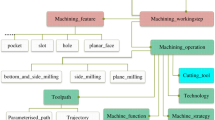Abstract
In the current era, the energy consumption of the manufacturing industry is very serious. How to achieve optimal control of energy consumption in the manufacturing process with technological innovation as the driving force has become a current research hotspot. Based on this, this article has deeply studied the application of control technology in energy consumption management and control, and designed the sparse coupling relationship and analysis model based on the greedy optimization algorithm. From the aspects of conventional energy consumption, technical methods, output control and energy consumption in the manufacturing industry, based on production data, the optimal control strategy for energy consumption is analyzed and quantitatively evaluated through the greedy optimization algorithm. The results show that the energy consumption relationship analysis model based on the matching tracking algorithm has the advantages of high computational efficiency and high precision.






Similar content being viewed by others
References
Marsiglio S, Tolotti M. Endogenous growth and technological progress with innovation driven by social interactions. Economic Theory 2018;65.
Rodríguez A, Jesús Nieto M, Santamaría L. International collaboration and innovation in professional and technological knowledge-intensive services. Industry Innov. 2018;25.
Oliveira PRS, da Silveira JMFJ, Bullock DS. Innovation in GMOs, technological gap, demand lag, and trade. Agribusiness 2019(1).
Si S, Wang S, Welch SM. Building firm capability through imitative innovation: Chinese manufacturing SME cases. Chin Manag Stud. 2018;12(2).
Soto-Acosta P, Popa S, Martinez-Conesa I. Information technology, knowledge management and environmental dynamism as drivers of innovation ambidexterity: a study in SMEs. J Knowl Manag 2018(2).
García-Morales VJ, Martín-Rojas R, Esmeralda Lardón-López M. Influence of social media technologies on organizational performance through knowledge and innovation. Baltic J Manag. 2018;13(3):345–67.
Kwac J, Flora J, Rajagopal R. Lifestyle segmentation based on energy consumption data. IEEE Transactions on Smart Grid. 2018;9(4):2409–18.
Wei F, Lin X, Chen L, et al. Microgrid comprehensive energy consumption system based on phase change building materials. Zhongguo Dianji Gongcheng Xuebao/Proceedings of the Chinese Society of Electrical Engineering. 2018;38(3):792–804.
Hu Y, Peng L, Li X, et al. A novel evolution tree for analyzing the global energy consumption structure. Energy. 2018;147:1177–87.
Xia WT, Xiang XY, Yang WQ, et al. Effect of flow pattern on energy consumption and properties of copper powder in the electrolytic process. Solid State Phenom. 2018;279:77–84.
Liu L, Wang Ke, Wang S, et al. Assessing energy consumption, CO 2 and pollutant emissions and health benefits from China’s transport sector through 2050. Energy Policy. 2018;116:382–96.
Liu L, Xu S, Cui L, et al. Power rationing for tradeoff between energy consumption and profit in multimedia heterogeneous networks. IEEE J Sel Areas Commun. 2019;11(99):1–1.
SP Nathaniel. Modelling urbanization, trade flow, economic growth and energy consumption with regards to the environment in Nigeria. GeoJ 2019(6).
Interlenghi SF, de Medeiros JL, de Queirozfernandesaraújo O. A Lifecycle sustainability assessment of CO2 emissions, energy consumption and social aspects of methylic and ethylic biodiesel using principal component analysis. Mater Sci Forum. 2019;965:1–12.
C Camposeco-Negrete, J de Dios Calderón-Nájera. Sustainable machining as a mean of reducing the environmental impacts related to the energy consumption of the machine tool: a case study of AISI 1045 steel machining. Int J Adv Manuf Technol. 2019;102(8).
Acknowledgements
National Natural Science Foundation of China. The impact of incubation network governance mechanism and negative effects on network performance. Grant No. 7167020995.
Author information
Authors and Affiliations
Corresponding author
Additional information
Publisher's Note
Springer Nature remains neutral with regard to jurisdictional claims in published maps and institutional affiliations.
Rights and permissions
About this article
Cite this article
Lan, S., Hu, H. Research on the coupling relationship between manufacturing technology innovation and energy consumption based on intelligent algorithms. J Therm Anal Calorim 144, 1689–1696 (2021). https://doi.org/10.1007/s10973-020-10440-4
Received:
Accepted:
Published:
Issue Date:
DOI: https://doi.org/10.1007/s10973-020-10440-4




